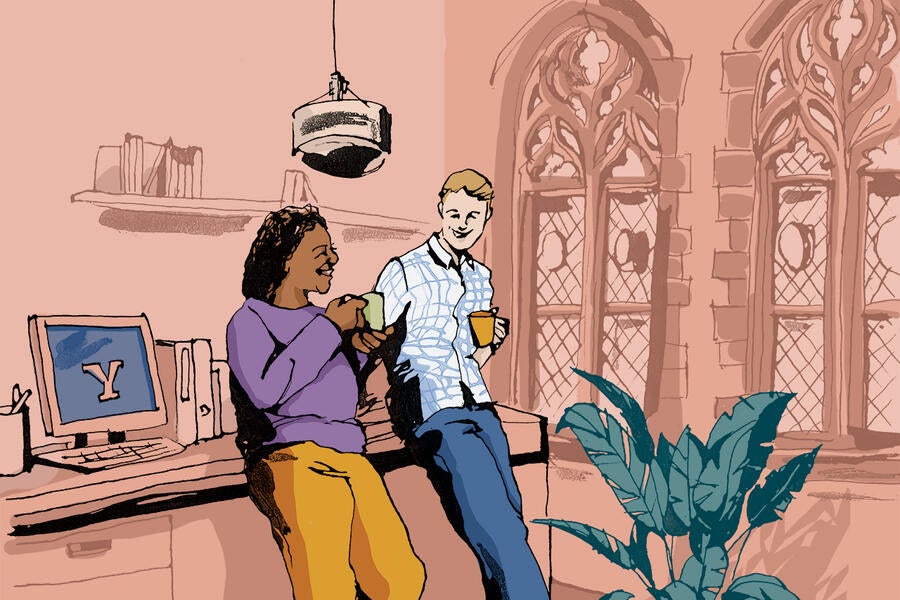
Azmi Ahmad understands the loneliness of starting somewhere new. He grew up in Palestine, then moved to the U.S. when he was 17, to attend Union College in Schenectady, New York. After completing his Ph.D. at the University of Utah in Salt Lake City, he came to Yale as a postdoctoral associate in Internal Medicine, with a specialty in cardiology. He arrived in October 2020, when many staff and students were working or studying remotely — compounding the anxiety and sense of displacement that may come with adjusting to a new home, workplace, and colleagues.
Azmi found his own sense of community in the Yale Postdoctoral Association (YPA) and the Yale School of Medicine Black Postdoctoral Association (YBPA), but he also witnessed many of his peers struggling with feelings of isolation. Searching for a way to help, he came across the Mental Health First Aid course offered by Being Well at Yale, which provides resources and support for healthier lifestyles.
The skills-based course teaches participants about mental illness and substance misuse and how to support someone in crisis. “I felt the class was a great opportunity for me to normalize the conversations around mental health and help destigmatize the challenges people face,” says Azmi, now a postdoctoral fellow. “I wanted to become a better advocate.”
I wanted to become a better advocate.
Participants work with an instructor to learn to recognize signs of stress and behavioral changes, and strategies for approaching and interacting with someone displaying them. The course’s fundamental action plan is called ALGEE: 1) Assess, 2) Listen nonjudgmentally, 3) Give reassurance and information, 4) Encourage appropriate professional help, and 5) Encourage self-help and other support.
The program is offered once or twice a month, throughout the year, to faculty, staff, and students. Units, student groups, or schools can request private course training if they have a minimum of 10 participants. About 350 students and staff have participated in the program since it began in 2020.
The course meets a clear desire in the Yale community to learn how to provide support to others, says Danielle Casioppo, who is a certified instructor for Mental Health First Aid and an educational specialist at Being Well at Yale. It is important to remember, Danielle notes, that while the course provides certification and teaches attendees to notice changes in behavior, appearance, mood, or thought, they will not be able to provide the same help a mental health professional can. “You can’t diagnose or treat someone, but you can act like a bridge, providing support and connecting them with appropriate professional help.”
Since he completed the course in Mental Health First Aid, Azmi feels more confident about aiding others, and more adept at addressing his own stresses as well. “Part of the training encourages you to create a self-care plan, because you can’t help others if you are feeling stressed or overwhelmed,” he says.
The best advice for when you feel overwhelmed? Reach out for help. “If you are feeling distressed, you need to talk to someone,” Azmi says. “Don’t keep it to yourself.”
May is National Mental Health Awareness Month. If unrecognized or stigmatized, mental health issues negatively impact the wellbeing of children, families, and communities. The Mental Health First Aid course offered by Being Well at Yale runs periodically or by request and is open to students, staff, and faculty. Additional resources available to staff can be found on the Yale Signature Benefits web page.






